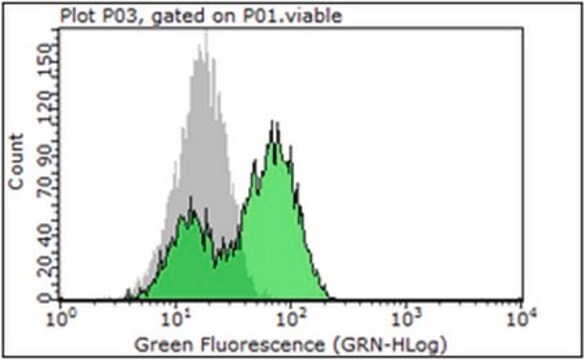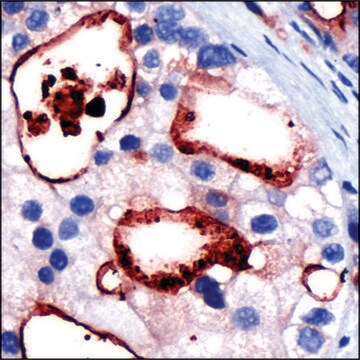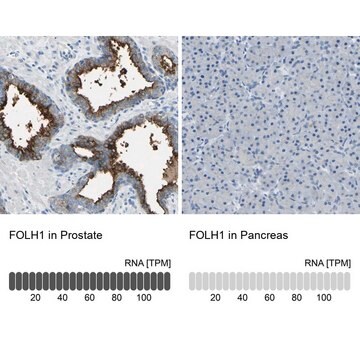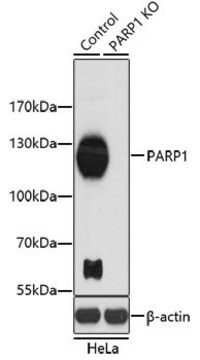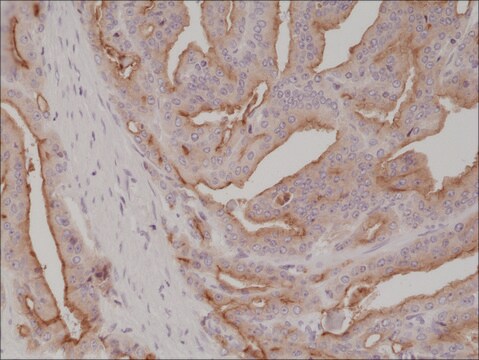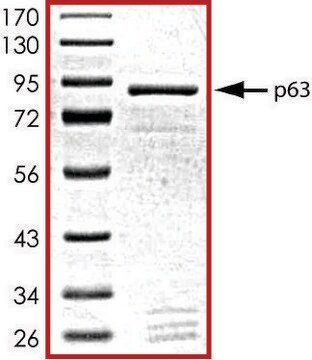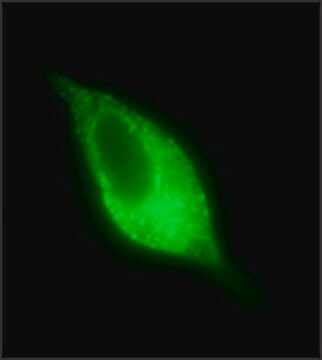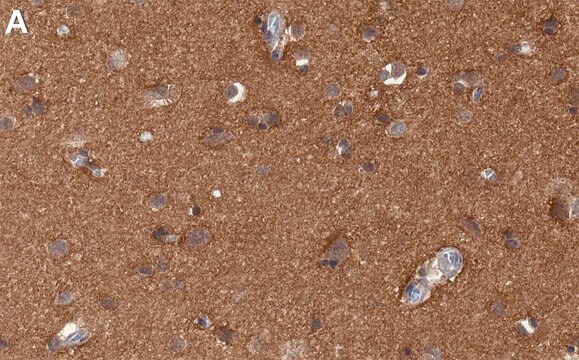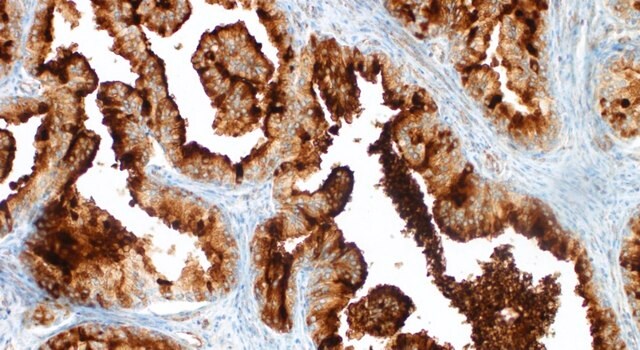327R-1
PSMA (EP192) Rabbit Monoclonal Primary Antibody
Synonyme(s) :
Prostate-specific membrane antigen
About This Item
Produits recommandés
Source biologique
rabbit
Niveau de qualité
100
500
Conjugué
unconjugated
Forme d'anticorps
culture supernatant
Type de produit anticorps
primary antibodies
Clone
EP192, monoclonal
Description
For In Vitro Diagnostic Use in Select Regions
Forme
buffered aqueous solution
Espèces réactives
human
Conditionnement
vial of 0.1 mL concentrate (327R-14)
vial of 0.1 mL concentrate Research Use Only (327R-14-RUO)
vial of 0.5 mL concentrate (327R-15)
vial of 1.0 mL concentrate (327R-16)
vial of 1.0 mL concentrate Research Use Only (327R-16-RUO)
vial of 1.0 mL pre-dilute Research Use Only (327R-17-RUO)
vial of 1.0 mL pre-dilute ready-to-use (327R-17)
vial of 7.0 mL pre-dilute ready-to-use (327R-18)
vial of 7.0 mL pre-dilute ready-to-use Research Use Only (327R-18-RUO)
Fabricant/nom de marque
Cell Marque™
Technique(s)
immunohistochemistry (formalin-fixed, paraffin-embedded sections): 1:10-1:40 (concentrated)
Isotype
IgG
Contrôle
prostate
Conditions d'expédition
wet ice
Température de stockage
2-8°C
Visualisation
cytoplasmic, membranous
Informations sur le gène
human ... FOLH1(2346)
Catégories apparentées
Description générale
Qualité
 IVD |  IVD |  IVD |  RUO |
Forme physique
Notes préparatoires
Note: This requires a keycode which can be found on your packaging or product label.
Download the latest released IFU
Note: This IFU may not apply to your specific product lot.
Autres remarques
Informations légales
Vous ne trouvez pas le bon produit ?
Essayez notre Outil de sélection de produits.
Code de la classe de stockage
12 - Non Combustible Liquids
Classe de danger pour l'eau (WGK)
WGK 2
Faites votre choix parmi les versions les plus récentes :
Certificats d'analyse (COA)
Vous ne trouvez pas la bonne version ?
Si vous avez besoin d'une version particulière, vous pouvez rechercher un certificat spécifique par le numéro de lot.
Déjà en possession de ce produit ?
Retrouvez la documentation relative aux produits que vous avez récemment achetés dans la Bibliothèque de documents.
Notre équipe de scientifiques dispose d'une expérience dans tous les secteurs de la recherche, notamment en sciences de la vie, science des matériaux, synthèse chimique, chromatographie, analyse et dans de nombreux autres domaines..
Contacter notre Service technique